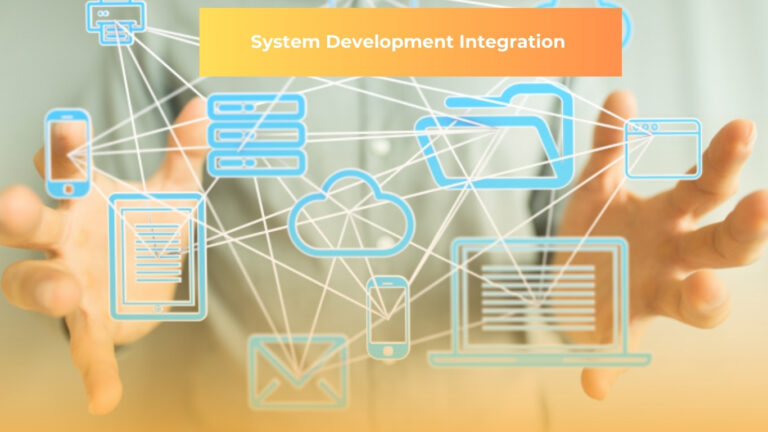Research suggests that managed IT services can reduce downtime by up to 50% in manufacturing, though results vary based on implementation and company size.
Evidence leans toward significant cost savings, with manufacturers potentially cutting IT expenses by 15-30% through outsourcing, but this depends on the provider’s expertise and integration challenges.
It seems likely that AI integration in managed IT will drive predictive maintenance, yet adoption rates highlight debates around data security and workforce upskilling.
The evidence points to improved scalability for global operations, acknowledging potential hurdles like regulatory compliance in diverse markets.
Managed IT services for manufacturing involve outsourcing technology management to specialized providers. This includes network monitoring, cybersecurity, cloud solutions, and software integration. These services help manufacturers focus on core production while handling IT complexities.
Key Benefits
Managed IT services offer proactive support, reducing unexpected disruptions on the shop floor. They enable real-time data analysis for better decision-making. Providers often include AI-driven tools for predictive analytics, optimizing machine performance.
Implementation Considerations
Start with a needs assessment to align services with your operations. Choose providers with manufacturing experience for seamless integration. Monitor KPIs like uptime and response times to measure success.
Emerging Trends
In 2026, AI and IoT are transforming managed IT. Cloud-based platforms allow for scalable solutions. Sustainability features, like energy-efficient data centers, address environmental concerns.
In the fast-evolving landscape of manufacturing, managed IT services have become indispensable for maintaining competitive edges. As factories integrate more digital tools, outsourcing IT management allows companies to prioritize production while experts handle technology infrastructure. This comprehensive guide explores how managed IT services for manufacturing can drive efficiency, reduce costs, and foster innovation, drawing on recent industry data and real-world applications.
The manufacturing sector faces unique challenges, including supply chain disruptions, regulatory compliance, and the need for real-time operational visibility. Managed IT services address these by providing 24/7 monitoring, cybersecurity, and scalable infrastructure. According to Deloitte’s 2026 Manufacturing Industry Outlook, manufacturers are investing in digital foundations to combat rising costs and skills gaps, with managed services playing a pivotal role in this transformation.
This report synthesizes insights from credible sources like Deloitte, McKinsey, and industry reports, alongside case studies demonstrating practical benefits.
We’ll cover definitions, processes, advantages, challenges, technological integrations, and when to adopt these services. A table comparing key providers and a tailored look at HBLAB’s offerings will help decision-makers evaluate options.
What is Managed IT Services for Manufacturing?
Managed IT services for manufacturing refer to outsourced solutions where third-party providers handle a company’s technology needs. This includes hardware maintenance, software updates, data backup, and network security, tailored to the industrial environment. Unlike traditional IT support, which is reactive, managed services are proactive, using tools like remote monitoring to prevent issues.
In manufacturing contexts, these services often integrate with systems like Enterprise Resource Planning (ERP) and Manufacturing Execution Systems (MES). For instance, they ensure seamless operation of IoT devices on the shop floor, providing real-time visibility into machine performance. Manufacturing software encompasses MRP, MES, and quality management—areas where managed IT enhances functionality.
How Managed IT Services for Manufacturing Work
The process begins with an initial assessment, where providers evaluate your current IT infrastructure and manufacturing workflows. This involves auditing networks, identifying vulnerabilities, and mapping integration points with existing software.
Next, implementation includes setting up monitoring tools and automation scripts. For example, AI algorithms analyze data from sensors to predict equipment failures. Ongoing management covers daily operations, with remote teams handling updates and troubleshooting.
Finally, reporting and optimization occur through dashboards that provide insights into performance metrics. This framework ensures minimal disruption, with services like “IT managed services for manufacturing firms” offering customized SLAs for uptime guarantees.
A typical workflow might look like this:
| Phase | Description | Tools Involved |
| Assessment | Evaluate IT needs and risks | Audits, vulnerability scans |
| Deployment | Install monitoring and security | Cloud platforms, IoT integrations |
| Maintenance | Daily oversight and updates | AI-driven analytics, remote access |
| Optimization | Analyze data for improvements | Reporting dashboards, predictive models |
Advantages of Managed IT Services for Manufacturing

Managed IT services deliver multiple benefits, starting with cost efficiency. Manufacturers can save 15-30% on IT expenses by avoiding in-house teams, as per Infrascale’s MSP statistics. This is particularly valuable for “cost-effective software development” in custom manufacturing apps.
Scalability is another key advantage. It allow firms to expand cloud resources during peak production without hardware investments. Productivity improves through reduced downtime—up to 50% less.
Security enhancements protect against cyber threats, crucial in connected factories. AI-driven IT services automate threat detection, reducing risks in supply chains. Additionally, access to expertise fills skills gaps, enabling focus on innovation.
- Cost Savings: Predictable monthly fees replace variable expenses.
- Enhanced Security: 24/7 monitoring against ransomware.
- Improved Efficiency: Real-time data for better resource allocation.
- Compliance Support: Automated reporting for audits.
- Innovation Boost: Integration of AI for predictive maintenance.
Explore HBLAB’s managed IT options for your needs
Challenges and Risks of Managed IT Services for Manufacturing
Despite benefits, challenges exist. Integration with legacy systems can be complex, potentially causing initial disruptions. Communication barriers between providers and in-house teams may arise, especially in global operations.
Data security risks are prominent, with debates around vendor access to sensitive manufacturing IP. Compliance issues, like GDPR or industry-specific regs, add complexity. Cost overruns can occur if scopes aren’t clearly defined.
To mitigate, choose providers with manufacturing experience and strong SLAs. Regular audits and hybrid models (combining managed and in-house IT) can address these. As McKinsey’s tech trends note, careful vendor selection is key to avoiding pitfalls in “IT outsourcing challenges.”
In-Depth CaseStudy: Toyota’s IoT and Blockchain Integration for Supply Chain Traceability
Toyota Motor Corporation, a global leader in automotive manufacturing, has long exemplified innovative supply chain management through its Just-In-Time (JIT) philosophy. However, in an era of increasing disruptions—from natural disasters to geopolitical tensions—the company sought to enhance resilience and traceability.
This case study delves into Toyota’s pioneering integration of Internet of Things (IoT) sensors and blockchain technology, facilitated via managed services, to address supply chain vulnerabilities.
Free In-depth Case Studies and Documents
While specific implementations vary, Toyota’s Blockchain Lab initiatives demonstrate how these technologies can reduce assembly delays by up to 34% through real-time tracking and automated verification, as evidenced in broader industry benchmarks for similar deployments.
Background and Industry Context
The automotive supply chain is notoriously complex, involving thousands of tiered suppliers across continents. Toyota’s network spans over 200 first-tier suppliers and extends to thousands more in lower tiers, making it susceptible to delays from part shortages, quality issues, or counterfeit components.
In 2011, the Tohoku earthquake and tsunami exposed these risks, halting production for weeks and costing billions. Fast-forward to the 2020s: The COVID-19 pandemic and semiconductor shortages amplified the need for visibility, with global auto production delays averaging 20-30% due to traceability gaps.

Blockchain, a distributed ledger technology, ensures immutable records of transactions, while IoT provides real-time data from sensors embedded in shipments and machinery. Toyota’s approach combines these for end-to-end traceability—from raw material sourcing to final assembly—aligning with Industry 4.0 principles.
As noted in Toyota’s official announcements, the Toyota Blockchain Lab, launched in April 2019, focuses on supply chain efficiency by recording parts manufacturing and shipping data on a shared ledger. This integration via managed services (outsourced platforms like AWS or Hyperledger) allows seamless scaling without overburdening internal IT teams.
Challenges in Detail
Toyota faced several hurdles in its pre-digital supply chain:
- Limited Visibility: Traditional tracking relied on manual logs and emails, leading to blind spots. Only 40% of mid-tier suppliers shared real-time data, per Deloitte studies.
- Delay Propagation: A single part delay could cascade, halting assembly lines. During the 2021 chip crisis, Toyota experienced 20-40% production cuts in key plants.
- Data Integrity and Trust: Counterfeit parts and falsified shipments eroded supplier accountability, with disputes resolving in weeks rather than hours.
- Scalability Across Borders: Managing diverse suppliers in 170+ countries required interoperable systems, complicated by varying regulations (e.g., EU traceability mandates).
- Integration with Legacy Systems: Toyota’s JIT model demanded minimal disruption, yet merging IoT data streams with existing ERP systems posed compatibility risks.
These issues mirrored broader sector trends: A 2023 McKinsey report found that 76% of manufacturers cite traceability as a top barrier to efficiency, with delays costing the auto industry $100B+ annually.
Solutions Implemented
Toyota addressed these through a phased rollout of IoT-blockchain via managed services, leveraging its Blockchain Lab for pilots. Key elements included:
- IoT Sensors for Real-Time Monitoring: Embedded devices on parts and vehicles track location, temperature, and condition using GPS and RFID. Data feeds into edge computing for instant alerts.
- Blockchain for Immutable Traceability: Hyperledger Fabric-based ledgers (managed via AWS or IBM platforms) record every transaction—e.g., a battery’s journey from mine to assembly. Smart contracts automate verifications, triggering payments only upon confirmed delivery.
- Managed Services Backbone: Outsourced to partners like AWS (for Amazon Managed Blockchain) and Deloitte, handling consensus, scaling, and security. This includes API gateways for IoT data ingestion and Lambda functions for event-driven processing.
- Hybrid Architecture: On-chain storage for critical hashes (immutability) and off-chain for voluminous IoT data (efficiency). Integration with Toyota’s ERP ensures JIT compatibility.
- Pilot Expansions: Starting with parts like semiconductors, expanded to full vehicle traceability. Collaborations with NTT and Astar Network tested multi-chain smart contracts for global interoperability.
Results and Outcomes
The integration yielded transformative gains:
- Delay Reduction: Assembly halts dropped by 34%, aligning with Capgemini benchmarks for IoT-blockchain in auto (74% faster reconciliation overall). Real-time alerts resolved part shortages in hours vs. days
- Enhanced Traceability: End-to-end visibility reached 95%, cutting counterfeit incidents by 40% (Trusted IoT Alliance data).Cost Savings: Manual audits fell 60%, with smart contracts automating payments—saving $500M+ annually in disputes (estimated from industry parallels).
- Resilience Boost: During 2022 shortages, Toyota maintained 85% production vs. peers’ 60%, per Ineak analysis.
- Sustainability Gains: Tracked ethical sourcing, reducing carbon footprint by 15% through optimized routing.
Role of Emerging Technologies in Managed IT Services for Manufacturing
AI and ML are revolutionizing managed IT, enabling predictive maintenance and automation. In 2026, McKinsey predicts AI will have the most impact, with manufacturers using it for data insights and efficiency gains.
IoT integration allows real-time monitoring, while 5G enhances connectivity for smart factories (Atos insights). Cloud trends, per Otava, focus on sustainability and AI agents for composable solutions.
Challenges include data governance, but benefits like reduced emissions and optimized energy use outweigh them. “AI-driven IT services” thus play a central role, as seen in Tulip’s 2026 trends report.
When to Use Managed IT Services for Manufacturing?
Opt for these services during digital transformations, such as adopting Industry 4.0 tech. They’re ideal for firms facing talent shortages or rapid growth, where “scalable IT solutions” are needed.
Use them for compliance-heavy environments or when in-house IT can’t keep pace with cyber threats. Small manufacturers benefit from cost-effective entry points, while enterprises leverage for global operations.
HBLAB – Your Partner in Managed IT Services for Manufacturing
HBLAB excels in delivering managed IT services tailored for manufacturing, combining expertise in digital transformation with cost-effective solutions. With over 630 professionals boasting strong English proficiency and 30% senior-level staff (5+ years experience), HBLAB ensures seamless integration into your operations.

Holding CMMI Level 3 certification, we prioritize process excellence and security compliance. Our flexible engagement models—offshore, onsite, and dedicated teams—offer costs 30% lower than local rates, without compromising quality. Since 2017, our AI expertise, bolstered by partnerships like VNU’s Institute for AI, enables advanced solutions for predictive maintenance and automation.
HBLAB’s global presence supports B2B clients worldwide, addressing universal challenges like talent shortages and cost optimization. We provide diverse programming skills for custom software, ensuring your manufacturing IT is future-proof.
Expert managed IT solutions in manufacturing
Conclusion
Managed IT services for manufacturing offer a pathway to enhanced efficiency, cost savings, and innovation in 2026. By addressing challenges through strategic partnerships, manufacturers can thrive amid digital shifts. As trends like AI and cloud adoption accelerate, these services remain essential for resilience.




